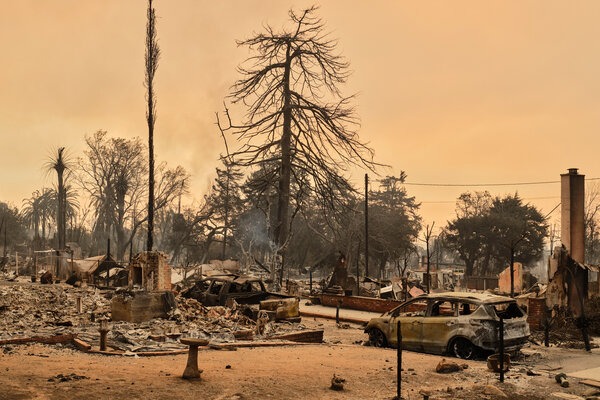Author: Bruno Villalobos
The return of Donald J. Trump to the White House has been proclaimed by his supporters as the return of American exceptionalism and as the beginning of an ever-lasting era of American political, economic and moral leadership. In this context, the destruction of ecosystems at the expense of life on Earth, captured by the concept of ‘Ecocide’, deserves our increasing attention, since the policies of Trump’s new administration will likely aggravate climate change. By abandoning international agreements and endorsing the highly polluting fossil fuel industry, Trump’s figure symbolizes a dominant outlook on the natural world as ‘expendable’ in the pursuit of global power and capital accumulation.

Looking back to the ‘First’ Trump
Among the most important and yet daunting decisions that Trump took during his first mandate was to withdraw from the Paris Agreement. The goal of these Accords was to put a cap on global warming to 1.5 degrees Celsius above pre-industrial levels. For this it was necessary that signing members reduce their carbon emissions. The United States, as the second largest contributor of greenhouse gases, had to play a fundamental role in achieving this goal.
And yet, giving up on the global responsibility of the US, Trump argued that the Paris Accords placed unwarranted economic burdens on the US while other countries remained relatively free to pollute. Without US leadership, efforts to reduce emissions stagnated until Biden’s administration restored US commitments. For the past years, Trump has remained a strong critic of climate agreements, instead pledging his endorsement for fossil fuel energy.
What to expect from his second term?
With only a few days in office, Trump has already signed multiple executive orders that are reversing the course of climate action in the US, with grave effects on the world environment. Not only has he withdrawn from the Paris Accords one more time, but has signed the order ‘Unleashing American Energy’ to eliminate restrictions on methane emissions for oil and gas corporations. This amounts to violent harm against the environment since methane is one of the strongest greenhouse gases that produce climate change.

The motto of his energy policy can be best described, in his own words, as ‘Drill, Baby, Drill’: a thorough endorsement and intensification of fossil fuel extraction at the expense of renewable energies. He is encouraging the exploration of new crude oil deposits throughout American territory even though the production of oil in the US has increased already by 70% since his first mandate started. He is now ending the ‘Green New Deal’ by attacking Biden’s ‘Inflation Reduction Act’ which channelled billions of dollars to clean energy. In this same spirit, Trump is cancelling efforts to push for electric vehicle ownership, to save the American car industry.
Ongoing Ecocide and Trump’s Negligence
Trump’s early reactions to the wildfires in Los Angeles attest to his negligence of the devastating consequences of environmental degradation taking place in the US. He said that he would not aid California because, in his view, the tragic fires were caused by the water mismanagement of Governor Newsom, which allegedly set the conditions for the deadly blazes. By framing the tragedy in these terms, he has avoided the crude reality that irregular climate variations have in fact led to the fires. In the meantime, citizens of California are engaging in critical and active citizenship by demanding accountability for these wildfires. Survivors are demanding that Big Oil companies face criminal charges because of their contribution to climate change and the rising vulnerability to the latter that Californians are facing.

However, Trump’s negligence of these environmental disasters is, of course, rooted in his repeated practices of misinformation. He has even claimed, without evidence, that wind turbines create health problems like cancer, and has consistently used these statements to undermine state efforts that favor renewable energies.
Conclusion: From the ‘end of history’ to the ‘end of the world’
Trump’s second term is an attempt to realize a vision of American power rooted in market deregulation and the reckless pursuit of economic growth. In the span of a few days, he has rolled back environmental policies, rallied support for fossil fuels and dismissed renewable energies. At the end of the last century, the US presented the free-market as the inevitable and ultimate economic model, hence the expression ‘the end of history’. Trump is not only furthering such a model, but he is showing its irreversible limits and bringing forth its devastating consequences.
If Ecocide is the covert background of such an economic paradigm, we are now experiencing how this background is coming to the fore, showing itself in the various environmental disasters associated with climate change. In this juncture, Trump has in front of him two options: either reversing the course of history and preventing Ecocide or fully embracing the ‘end of history’ and, thereby, driving the planet to what is quite literally the ‘end of the world’. Unfortunately for us, Trump is choosing the second.